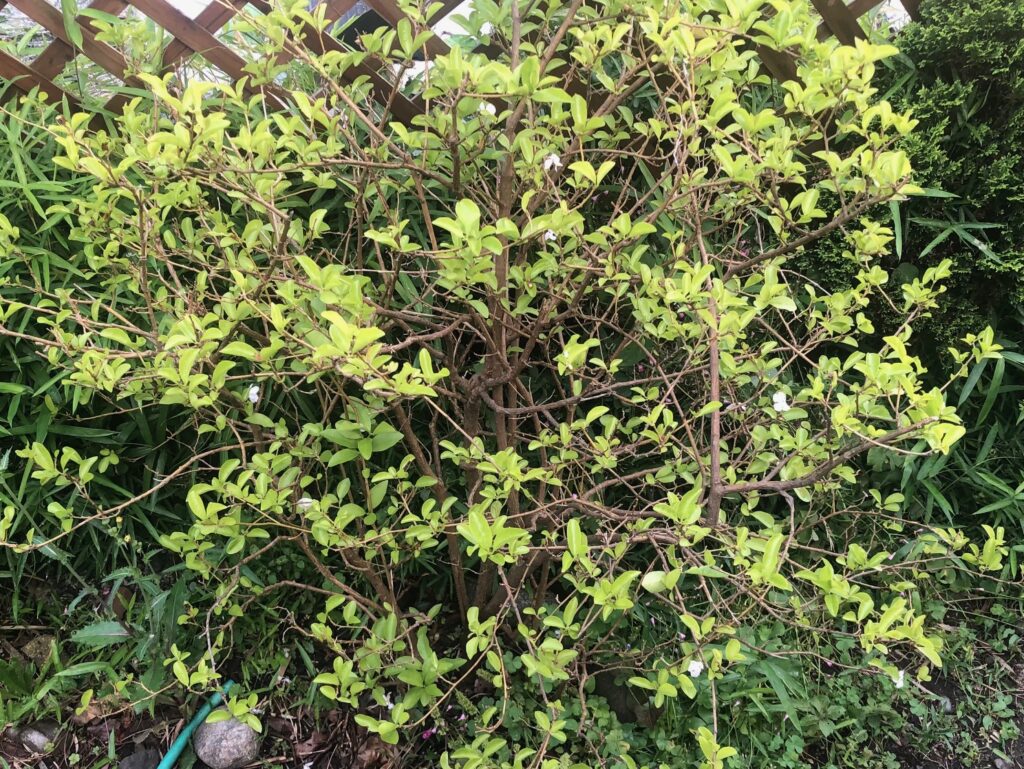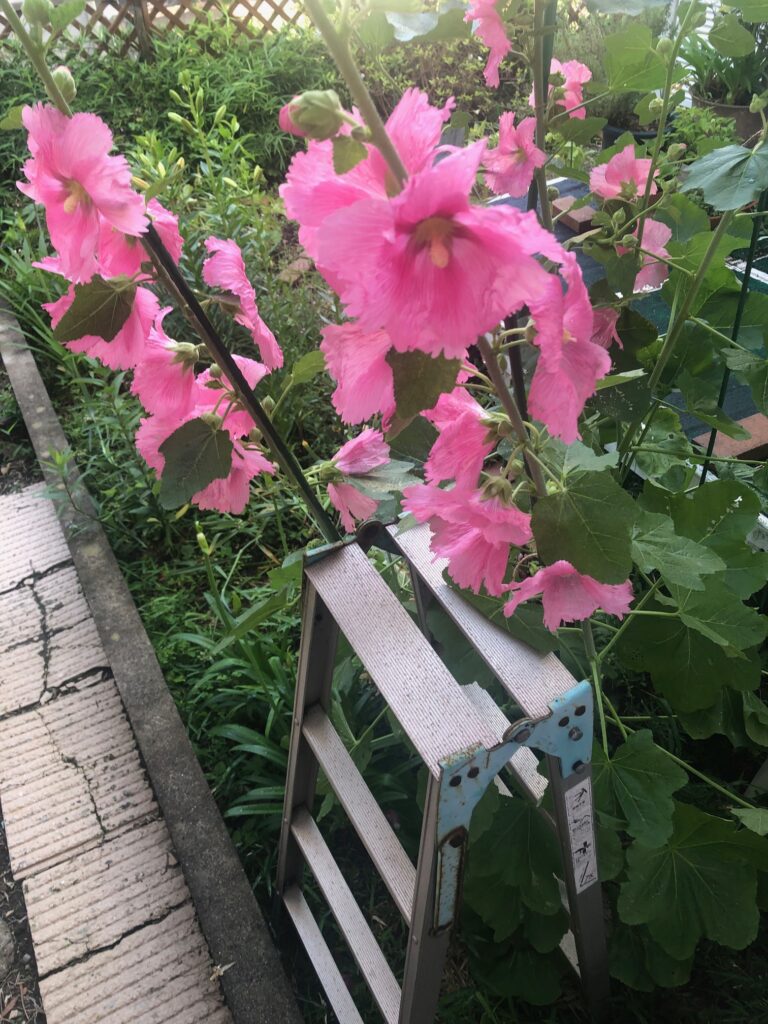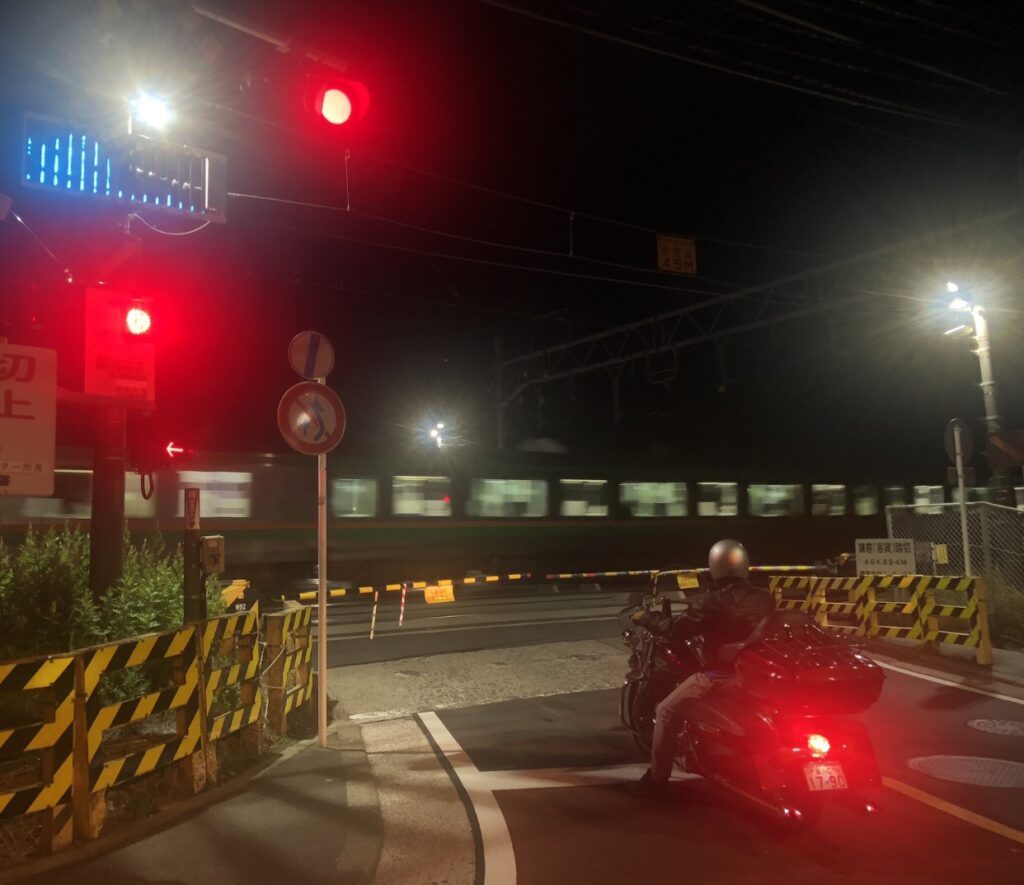house rulesとは狭くは「家庭内の決め事・決まり事」から「マンションの規則」「ホテルの利用規約」「社是」「内規」「麻雀その他ゲームのルール」などを指します。これはその例ですが、読み進めると、人生という家の基本ルールという感もありますし、反対語の学びにもなりそうです。


激しい風が五月の蕾を揺さぶるし・・・

Shall I compare thee to a summer’s day?
Thou art more lovely and more temperate.
Rough winds do shake the darling buds of May ……
Sonnet 18, William Shakespeare
Blooms of the yesterday-today-tomorrow are all gone.
Life goes on.
昨夜の嵐はニオイバンマツリの蕾というより花を
吹き飛ばし、タチアオイはスワリアオイとなった。
あらし去り
脚立で戻す
立葵

か細い立葵、脚立つ
未だにCROSS THE BRIDGEというと川に落ちてしまう気がする。ただCROSS THE RIVERだと体が川に入っている感もある。舟を漕げばOKだけれど橋はどこにもない。で、仕方なくCROSS THE BRIDGEを使っている。狭い橋ばかり渡っているからかもしれない。
「踏切を渡る」はCROSS THE RAILROADという。これは体も濡れないし良いが、どこでもクロッシングの印象もあるのだ。
「踏切」はRAILROAD/RAILWAY CROSSINGという。そしてナイトウォーカーは橋だけではなく、踏切にもさしかかる。

ナイトライダーも同じだが、ここを渡るにはCROSS THE CROSSINGとかCROSS THE RAILROAD/RAILWAY CROSSINGのように「くどい」表現になる。こういう言い回しは英語にそれなりにある。
Dream a dream of me tonight.とはなんちゃって君のセリフだが、He laughed a good laugh. She danced a dance of death. He died a painful death. Live a life to the full. He fought a good fight. She smiled an ineffable smile. He’s lived a life of an everyman. などそれなりだ。
こうした目的語は動詞と同根だから同族目的語と呼ばれる。どこか文学的だ。I had a terrible dream.は自然だが、I dreamed a dream of you last night.はやはり相手も書き手もモジモジしそうだ。
日本語には「踊りを踊る」「歌を歌う」「舞を舞う」「物語を語る」「飲み物を飲む」「食べ物を食べる」なんだ歌舞音曲や日常表現で結構あるのでは。
厳密にいえば英語の橋渡りは同族目的語使用ではないかもしれないが、いずれにしても「橋を渡る」がイメージが錯綜して落ち着かない。
I crossed the crossing to get to the bridge. Then I crossed the bridge and started swimming.
どうにも救えない。